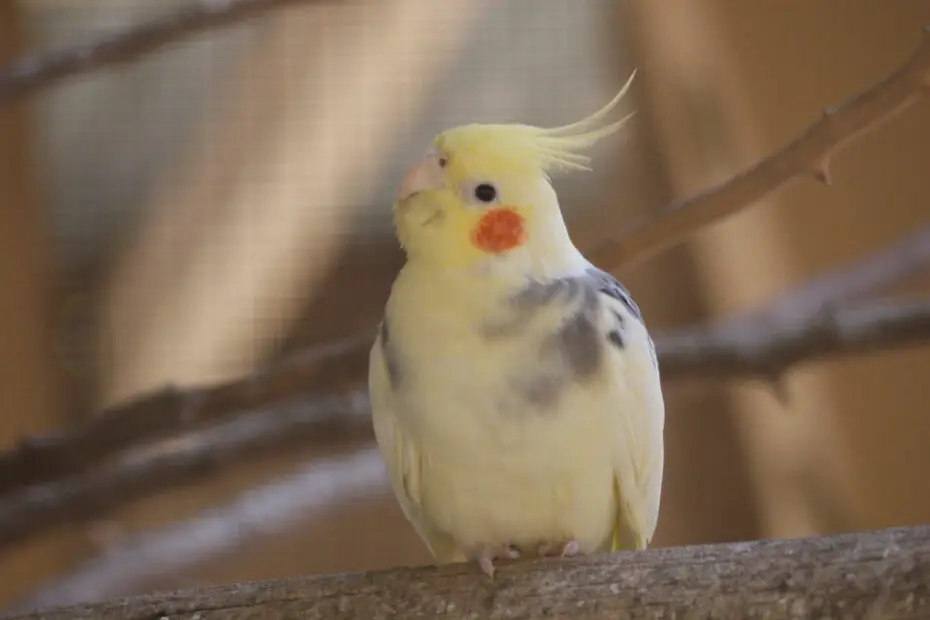Having a pet cockatiel can be a joy, but it also comes with managing the noise levels. Cockatiels are known for their vocalizations, which range from chirping and whistling to screeching and squawking. These noises can be distracting, especially in small living spaces.
Understanding factors that influence a cockatiel’s vocalization and behavior is critical. For example, a threatened or stressed bird may screech more frequently. A bored or under-stimulated bird may squawk excessively. The cockatiel’s health, where it is placed in the home, and the types of toys and enrichment provided can impact the bird’s behavior.
This article will provide comprehensive tips and tricks for managing and reducing bird noises at home. We’ll talk about training methods, environmental changes, and other factors that can help you tame your pet bird’s behavior. Whether you’re a first-time cockatiel owner or a seasoned bird enthusiast, this article will provide the information you need to keep your home quieter and more peaceful.
Understanding Cockatiel Noises
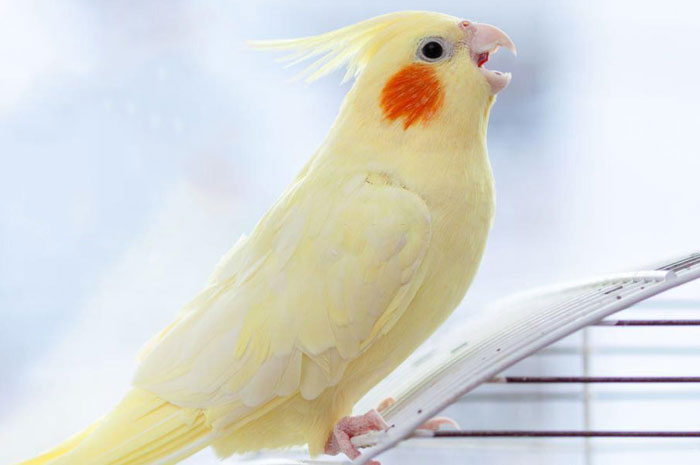
Let us review cockatiels’ various types of noises, how multiple factors influence them, and what they may indicate.
Types Of Cockatiel Noises
Some of the most common kinds of cockatiel noises include:
- Vocalizations: They refer to the sounds cockatiels make using their vocal cords. These can range from soft chirps and whistles to loud screeches. Cockatiels use vocalizations to communicate with each other, express their emotions, and establish their territory.
- Mimicry: This refers to cockatiels’ ability to mimic sounds they hear in their environment. This can include imitating human speech, other bird or animal sounds, or even sounds from electronic devices like phones or TVs. Mimicry is more commonly seen in male cockatiels, known for their vocal abilities.
- Call For Attention: Cockatiels use these sounds when they want something from their owner or feel lonely. These can include whistles, chirps, or even loud squawks.
It’s important to note that different cockatiel species and breeds may have different vocalizations depending on their natural habitat and genetic makeup. For example, some species may be more vocal or have a different tone or pitch. Similarly, certain breeds may be more prone to mimicry or calling for attention than others.
Factors That Influence Cockatiel Noises
Understanding the various factors influencing cockatiel vocalizations is essential in providing proper pet care. These factors include:
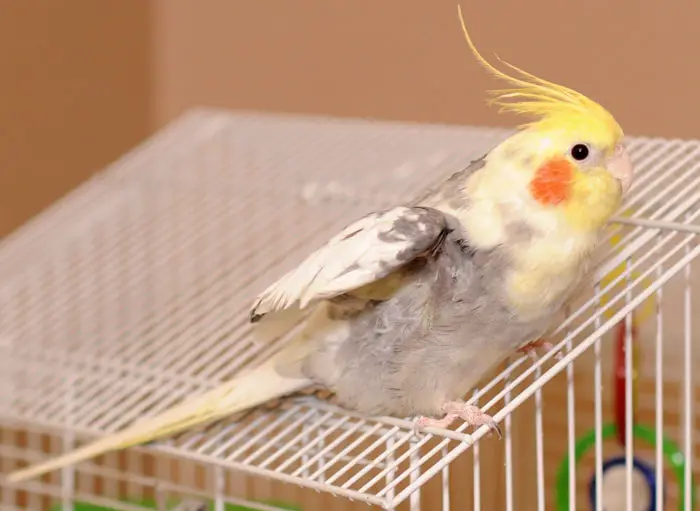
- Age: Younger birds tend to be more vocal as they explore and learn about their surroundings. As they age, their vocalizations may become more repetitive and patterned. Older cockatiels may become quieter or more selective in their vocalizations.
- Sex: Male and female cockatiels have different vocalizations. Males tend to be more vocal and have a more comprehensive range of sounds, including whistles and songs. Females are usually quieter and have more monotone vocalizations, such as chirps and tweets.
- Environment: The environment in which a cockatiel lives can also influence its vocalizations. Cockatiels mimic sounds they hear in their environment, including household noises and the sounds of other pets. They may also vocalize more in response to environmental changes, such as new objects or people in the home.
- Socialization: This exposes a cockatiel to different people, animals, and environments to help it become comfortable and confident. Cockatiels that have been well-socialized are generally quieter and more relaxed in their vocalizations. Those that have not been socialized may be more vocal and skittish.
- Habituation: This is the process by which an animal becomes accustomed to a repeated stimulus and stops reacting to it. In the case of cockatiels, habituation can occur with certain noises or sounds in their environment. For example, if a cockatiel is exposed to the sound of a loud car passing by its home daily, it may eventually habituate to the noise and stop reacting.
However, it’s important to note that habituation doesn’t always occur with all types of noise. Some noises may bother a cockatiel even after repeated exposure; in some cases, habituation can make a cockatiel more sensitive to a particular sound.
- Health: Cockatiels in good health tend to be more vocal and active. On the other hand, those that are sick or in pain may become quieter. Hence, excessive noise in cockatiels can indicate underlying behavioral or health issues.
When a cockatiel feels neglected or stressed, it may use excessive noise to get attention or express distress. Excessive noise can sometimes signify boredom, anxiety, or depression.
Accordingly, excessive noise can also be a symptom of specific health issues in cockatiels. For example, respiratory infections, digestive problems, or parasites can cause a cockatiel to vocalize excessively or make unusual noises. Cockatiels experiencing pain or discomfort may vocalize more than usual to communicate their distress to their owners.
Taming Cockatiel Noises
Cockatiels can be loud and disruptive in certain situations. Fortunately, there are several effective methods of taming cockatiel behavior.
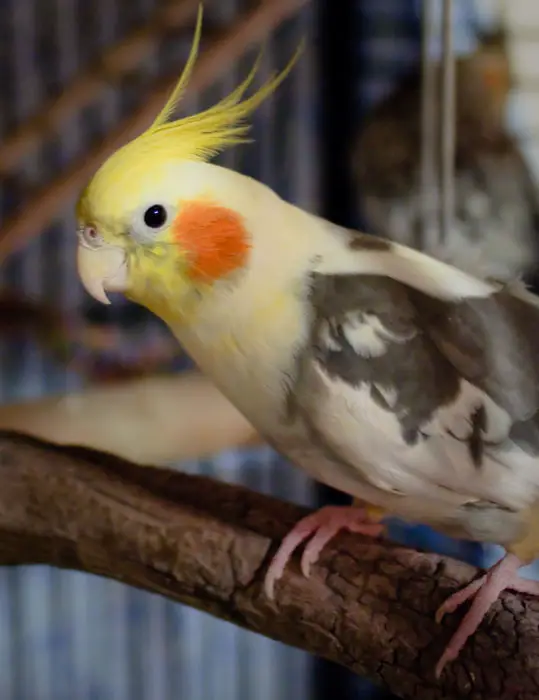
Overview On Training Cockatiels To Be Quiet
Positive reinforcement is the most effective way of managing cockatiel noises. This is a powerful tool for training cockatiels to be quieter. You can gradually shape your bird’s behavior towards quieter vocalizations by rewarding desirable behaviors with treats or praise. Consistency and patience are key.
Start by identifying the specific vocalizations you would like to discourage, such as loud squawking or screeching. Then, immediately reward your cockatiel when it makes a quieter sound, such as chirping or tweeting softly. With practice, your bird will learn that quieter sounds are more rewarding and will start to make them more frequently.
However, avoiding punishing or scolding your cockatiel for making noise is essential, as this can aggravate the bird’s behavior. The cockatiel does not recognize when you are angry; it only sees you giving it attention. Instead, focus on positive reinforcement and redirect your bird’s attention to a more appropriate activity, such as playing with a toy or bathing.
How To Identify And Address Specific Noise Triggers In Your Cockatiel’s Environment
Cockatiels can be sensitive to environmental stimuli that cause excessive vocalizations, such as loud noises, unfamiliar people or pets, or changes in routine. Identifying and addressing these triggers can help you in quieting pet birds.
Begin by observing your bird’s behavior and noting when it is most vocal. Is it in response to a specific noise or activity in the house? Does it happen at a particular time of day or during interactions with other pets or family members? Once you’ve identified the trigger, reduce its impact on your cockatiel’s environment.
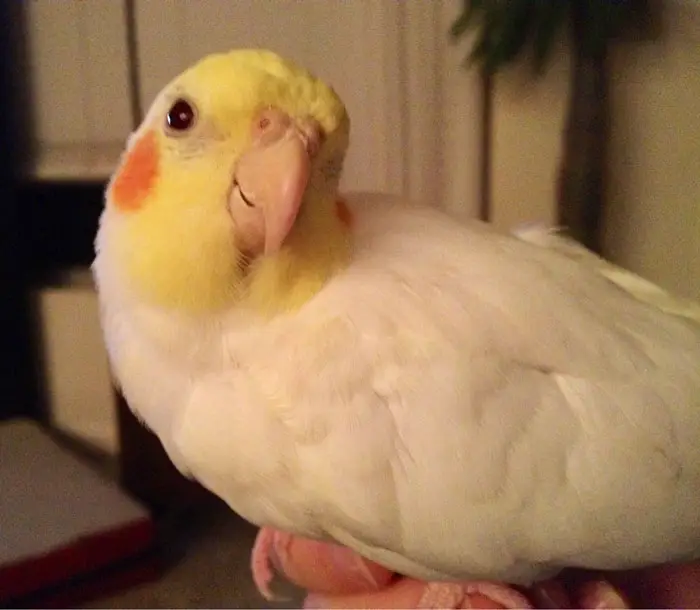
For example, if your bird is startled by loud noises, try playing soothing music or white noise to muffle external sounds. If it reacts to a new pet in the house, gradually introduce them to each other over time and provide separate living spaces if necessary. You can make your cockatiel more comfortable and reduce its overall noise levels.
How To Teach Your Cockatiel To Mimic Quieter Sounds
Cockatiels are natural mimics and can be trained to make various vocalizations, including softer, more pleasant sounds. One of the training techniques you can employ is teaching your bird to mimic quieter sounds. You can encourage positive vocalizations and reduce the frequency of loud, disruptive ones.
Another technique is using bird training equipment. For example, clickers can mark desired behaviors and help your cockatiel understand what actions lead to rewards. Clicker training involves associating the clicker sound with the cockatiel’s favorite treat. Once the cockatiel understands this connection, use the clicker technique only when the bird exhibits the behavior you like. Here is a video to show you how to clicker train your cockatiel.
You can also model the sounds you would like your cockatiels to make, such as soft whistles or chirps. Repeat these sounds consistently and reward your bird when it makes similar sounds. Gradually increase the difficulty of the sounds and reward your bird for successfully mimicking them.
How To Manage Noise Levels In A Multi-Pet Household Or Apartment Setting
Managing noise levels in a multi-pet household or apartment setting can be challenging. Still, several strategies can help reduce noise and keep your cockatiel happy and healthy.
First, creating a designated area for your cockatiel to feel safe and secure is essential. This area should be away from other pets and in a quiet location in your home. You can use bird cages or playpens to provide a safe and secure environment for your cockatiel.
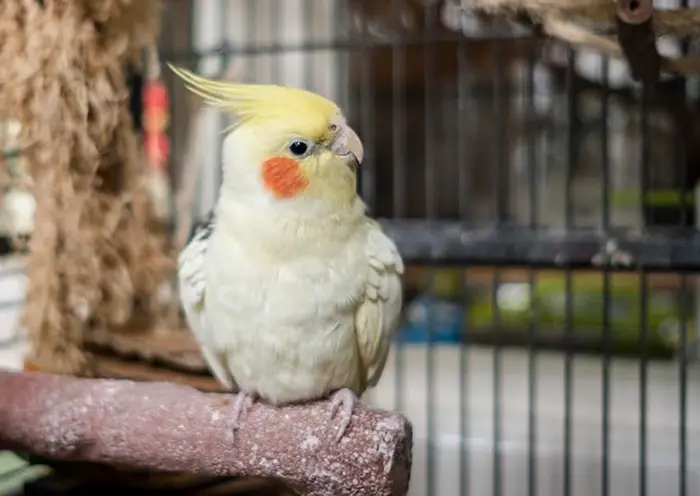
Another strategy is to schedule your cockatiel’s playtime and training sessions when your other pets or neighbors are less likely to be disturbed. This can help reduce your cockatiel’s noise and minimize disruptions to others.
In addition, you can use sound-absorbing materials in your home to reduce noise levels. For example, you can use carpets or rugs on your floors, acoustic panels on your walls, and curtains or window treatments to help absorb sound.
Environmental Changes For Quieter Living
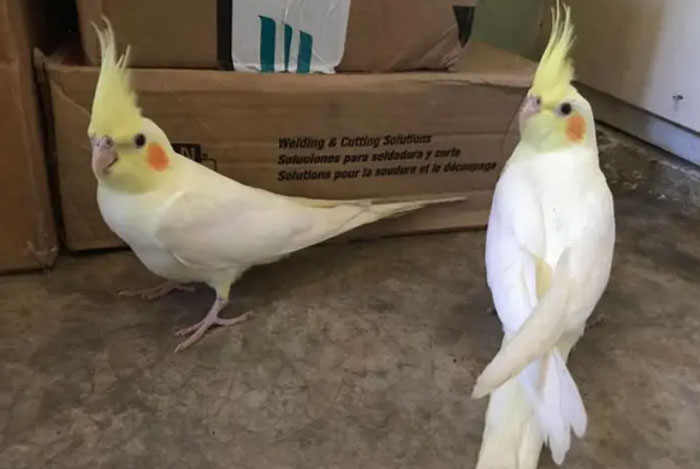
Creating a peaceful environment for your cockatiel can significantly reduce excessive noise levels. Here are some tips on how to make environmental changes for quieter living.
- Provide a comfortable and stimulating living space: One of the primary reasons why cockatiels make excessive noise is boredom or anxiety. You can reduce their stress and keep them occupied by providing a comfortable and stimulating living space. Provide your cockatiel with toys, perches, and other environmental enrichment activities they can engage in throughout the day. Ensure their cage is big enough for them to move around and fly inside.
- Designated quiet areas: If your cockatiel is making too much noise, creating appointed quiet rooms in your home may be helpful. This can be a space where your bird can retreat when they feel overwhelmed or stressed. You can make this space using a separate room or placing a cover over their cage.
- Use sound-absorbing materials: Another effective way to reduce noise levels in your home is using sound-absorbing materials and furniture. These materials can help to dampen sound and make your home quieter overall. You can use carpets, rugs, and curtains to help absorb sound.
Additionally, consider using furniture made from materials such as cork or acoustic foam that can help to reduce noise levels.
- Bird behavior management: By observing their behavior, you can identify specific triggers causing them to make excessive noise. Once you have recognized these triggers, you can work on modifying their behavior to reduce the noise. For example, if your bird becomes excessively noisy when hungry, feed them more frequently throughout the day.
- Bird grooming. Ensure you clean the cage regularly to eliminate pests that might infest the cockatiel. A pest-infested cockatiel might become very noisy.
- Bird psychology: Cockatiels are social animals and require regular interaction with their owners. Spending time with your bird can help to reduce their stress levels and make them feel more comfortable in their environment. This, in turn, can help to reduce their noise levels.
Besides, make sure that your bird gets enough rest and sleep. Cockatiels need 10-12 hours of sleep per day, so make sure their cage is in a quiet and dark area of your home during their sleeping hours.
FAQs
Here are other related questions that you might want answers to.
Cockatiels can be trained to be quieter through positive reinforcement and reward-based training. Identifying triggers that cause your bird to vocalize excessively and addressing them through training and environmental changes is essential.
Training can benefit birds of all ages, although seeing results in older birds may take longer. It’s essential to be patient and consistent in your training efforts.
Creating designated quiet areas for your bird, using sound-absorbing materials and furniture, and training your bird to be quieter can all contribute to lower noise levels in a shared living space. Communicating with your neighbors and letting them know you’re working to resolve the problem is also critical.
Yes, a poor diet or health issues can contribute to excessive vocalization and other behavioral problems in cockatiels. It’s essential to understand bird nutrition which ensures you provide a balanced and nutritious diet. Also, seek veterinary care if you suspect your bird is experiencing health issues.
Excessive vocalization, feather plucking, aggression, and a lack of hunger or activity can all be signs of stress or anxiety in cockatiels. If you detect these symptoms, treating the underlying problem and giving your bird a pleasant and exciting living environment is critical.
Conclusion
Taming cockatiel noises is essential for creating a harmonious living environment with your pet bird. Understanding the various types of vocalizations, their underlying meanings, and the factors influencing cockatiel behavior, is critical for effectively managing noise levels.
Positive reinforcement, using bird accessories such as clickers, and reward-based training can teach your cockatiel to be quieter. You can also make environmental changes, such as creating designated quiet areas and using sound-absorbing materials to help reduce noise levels.
It’s important to remember that cockatiels are social animals that require environmental enrichment to prevent boredom and anxiety, which can contribute to excessive noise. Following the tips and techniques outlined in this article, you can create a peaceful and enjoyable living space for you and your feathered friend. Find reputable online sources and consult your avian veterinarian for additional reading and resources on cockatiel behavior and vocalization.
